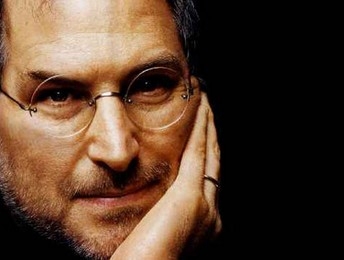To Infinity!
飛越太空!
There were two premieres of Toy Story in November 1995. Disney organized one at El Capitan, a grand old theater in Los Angeles, and built a fun house next door featuring the characters. Pixar was given a handful of passes, but the evening and its celebrity guest list was very much a Disney production; Jobs did not even attend. Instead, the next night he rented the Regency, a similar theater in San Francisco, and held his own premiere. Instead of Tom Hanks and Steve Martin, the guests were Silicon Valley celebrities, such as Larry Ellison and Andy Grove. This was clearly Jobs’s show; he, not Lasseter, took the stage to introduce the movie.
1995年11月,《玩具總動員》共舉行了兩場首映式。迪士尼在洛杉磯的埃爾卡皮坦大劇院(ElCapitan)舉辦了一場,還在隔壁建了一個游樂屋,展示所有的電影角色。皮克斯也有一些入場券,但是當晚的活動和邀請嘉賓的名單基本都是迪士尼決定的;喬布斯甚至都沒去參加。第二天晚上,喬布斯在舊金山租用了與前者不相上下的雷根西劇院(Regency),舉辦了他自己的首映式。到場嘉賓不再是湯姆·漢克斯和史蒂夫·馬丁這些影星,而是硅谷的那些大腕:拉里·埃利森、安迪·格魯夫、斯科特·麥克尼利,當然還有史蒂夫·喬布斯。很顯然這是一場史蒂夫的演出,他,而不是拉塞特占據了舞臺,向觀眾介紹影片。
The dueling premieres highlighted a festering issue: Was Toy Story a Disney or a Pixar movie? Was Pixar merely an animation contractor helping Disney make movies? Or was Disney merely a distributor and marketer helping Pixar roll out its movies? The answer was somewhere in between. The question would be whether the egos involved, mainly those of Michael Eisner and Steve Jobs, could get to such a partnership.
這種雙首映式的安排凸顯出一個日益嚴重的問題。《玩具總動員》到底是一部迪士尼電影還是一部皮克斯電影?皮克斯只是幫助迪士尼制作電影的動畫承包商嗎?抑或是,迪士尼只是幫助皮克斯出品電影的發行商和營銷商?正確的答案在某個折中位置。問題是其中牽涉到的大腕們,主要是邁克爾·艾斯納和史蒂夫·喬布斯,能否達成這樣的合作關系。
The stakes were raised when Toy Story opened to blockbuster commercial and critical success. It recouped its cost the first weekend, with a domestic opening of $30 million, and it went on to become the top-grossing film of the year, beating Batman Forever and Apollo 13, with $192 million in receipts domestically and a total of $362 million worldwide. According to the review aggregator Rotten Tomatoes, 100% of the seventy-three critics surveyed gave it a positive review. Time’s Richard Corliss called it “the year’s most inventive comedy,” David Ansen of Newsweek pronounced it a “marvel,” and Janet Maslin of the New York Times recommended it both for children and adults as “a work of incredible cleverness in the best two-tiered Disney tradition.”
當《玩具總動員》獲得巨大的商業成功和業界認可后,抉擇變得更為艱難。影片第一周上映就收回了成本,美國國內公映的票房達到3000萬美元&接下來,該影片打敗了《永遠的蝙蝠俠》(BatmanForever)和《阿波羅13號》(Apollo13),成為當年的票房冠軍——美國國內收入1.92億美元,全球總收入3.62億美元。根據著名影評網站“爛番茄”(RottenTomatoes)的統計,接受調査的全部73個影評家100%都給出了好評。《時代》雜志的理查德·科利斯(RichardCorliss)稱其為“本年度最具想象力的喜劇”;《新聞周刊》的戴維·安森(DavidAnsen)贊嘆“不可思議、《紐約時報》的珍妮特·馬斯林(JanetMaslin)認為該影片孩子和成人都要看,是“一部難以置信的智慧之作,體現了迪士尼最好的雙層次作品的傳統”。
The only rub for Jobs was that reviewers such as Maslin wrote of the “Disney tradition,” not the emergence of Pixar. After reading her review, he decided he had to go on the offensive to raise Pixar’s profile. When he and Lasseter went on the Charlie Rose show, Jobs emphasized that Toy Story was a Pixar movie, and he even tried to highlight the historic nature of a new studio being born. “Since Snow White was released, every major studio has tried to break into the animation business, and until now Disney was the only studio that had ever made a feature animated film that was a blockbuster,” he told Rose. “Pixar has now become the second studio to do that.”
對喬布斯來說,唯一的問題就是,像馬斯林這樣的評論家在談論“迪士尼傳統”,而不是皮克斯的出現。事實上,她的影評里根本沒提皮克斯。喬布斯很清楚,這是必須要加以改變的一個觀念。當他和約翰·拉塞特參加《查理·羅斯秀》(CharlieRmeShow)時,喬布斯強調《玩具總動員》是一部皮克斯電影,他甚至想說明這個新制片廠的誕生是具有歷史意義的。“自從《白雪公主》出品以來,每一家主要的電影制片廠都在試圖打入動畫產業,而到目前為止,迪士尼是唯一一家做出動畫長片而且大獲成功的。”他對羅斯說,“皮克斯現在成了第二家。”
Jobs made a point of casting Disney as merely the distributor of a Pixar film. “He kept saying, ‘We at Pixar are the real thing and you Disney guys are shit,’” recalled Michael Eisner. “But we were the ones who made Toy Story work. We helped shape the movie, and we pulled together all of our divisions, from our consumer marketers to the Disney Channel, to make it a hit.” Jobs came to the conclusion that the fundamental issue—Whose movie was it?—would have to be settled contractually rather than by a war of words. “After Toy Story’s success,” he said, “I realized that we needed to cut a new deal with Disney if we were ever to build a studio and not just be a work-for-hire place.” But in order to sit down with Disney on an equal basis, Pixar had to bring money to the table. That required a successful IPO.
喬布斯立場鮮明地把迪士尼說成是皮克斯電影的發行商。“他一直說,‘我們皮克斯的人是干實事的,你們迪士尼的人都是笨蛋’”邁克爾·艾斯納回憶說,“但正是我們讓《玩具總動員》成功的。我們幫著塑造了這部電影,我們集各部門之力,從市場部到迪士尼頻道,才讓這部電影一炮而紅。”喬布斯得出結論:“這是誰的電影”這個根本問題,必須通過合同解決,打口水仗沒有意義。“《玩具總動員》大獲成功后,”他說,“我意識到,我們必須跟迪士尼重新簽合同,這樣我們才能建一個電影公司而不是只當個供應商但是為了能和迪士尼平等地坐下來談判,皮克斯必須有資金。這就需要一次成功的IPO。
The public offering occurred exactly one week after Toy Story’s opening. Jobs had gambled that the movie would be successful, and the risky bet paid off, big-time. As with the Apple IPO, a celebration was planned at the San Francisco office of the lead underwriter at 7 a.m., when the shares were to go on sale. The plan had originally been for the first shares to be offered at about $14, to be sure they would sell. Jobs insisted on pricing them at $22, which would give the company more money if the offering was a success. It was, beyond even his wildest hopes. It exceeded Netscape as the biggest IPO of the year. In the first half hour, the stock shot up to $45, and trading had to be delayed because there were too many buy orders. It then went up even further, to $49, before settling back to close the day at $39.
股票公開發行在《玩具總動員》上映整一周后進行。之前喬布斯賭電影會成功,這個冒險的賭局有了巨大回報。和之前蘋果公司的IPO—樣,早上7點,主承銷商在舊金山辦公室開慶祝會,屆時股票發售開始。原計劃股票發行價格是14美元,以確保可以賣掉。喬布斯堅持定價22美元,這樣一來如果發行成功,公司可以獲得更多資金。然而事實證明,發行之成功甚至超出了他最大膽的想象,一舉超過網景成為當年最大的IPO。開盤半小時,股票價格就飆升至45美元,因為買盤太多交易不得不延遲進行。接下來,價格繼續上升至49美元,并在當天以39美元收盤。











